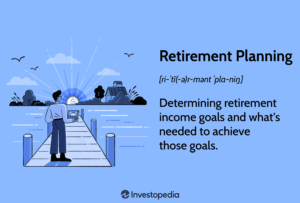In “What Is The Quality Of Life Like For Expatriate Retirees In Costa Rica?” you’ll discover why this Central American paradise has become a haven for retirees from around the globe. You will explore the vibrant expat communities, the affordable cost of living, and the breathtaking natural beauty that Costa Rica offers. Imagine waking up to the sound of tropical birds, enjoying fresh local cuisine, and having access to excellent healthcare—all while being surrounded by stunning landscapes. Whether you’re looking for relaxation or adventure, Costa Rica provides a quality of life that feels like a dream come true. Have you ever wondered what it would be like to retire in a tropical paradise? Many expatriate retirees are drawn to the inviting climate, rich culture, and affordable living costs in Costa Rica. But what is the quality of life like for expatriate retirees in this Central American gem? Let’s dive in and find out!
Check out our recommended retirement gifts!
Why Costa Rica?
When considering a retirement destination, Costa Rica often pops up due to its stunning natural beauty, political stability, and friendly locals. The country has a reputation for its “Pura Vida” lifestyle, which roughly translates to “pure life” or “simple life.” This philosophy prioritizes well-being and happiness, making it a compelling destination for those looking to enjoy their golden years.
Climate and Weather
Costa Rica offers a variety of climates, from the sun-soaked beaches to the cooler highlands. Whether you prefer the humid heat of the coastal regions or the more temperate weather in the Central Valley, Costa Rica has something for everyone.
| Region | Average Temperature (°F) | Rainy Season |
|---|---|---|
| Central Valley | 70-75 | May to October |
| Northern Coast | 75-95 | May to October |
| Southern Coast | 75-95 | May to November |
| Highlands | 60-70 | May to October |
The dry season, also known as the “high season,” lasts from December to April and is perfect for outdoor activities.
Cost of Living
One of the first questions many retirees have when considering a move to Costa Rica is about the cost of living. The answer can vary greatly depending on your lifestyle, but overall, Costa Rica is much more affordable compared to many Western countries.
Housing
Costa Rica offers a wide range of housing options, from budget-friendly apartments to luxurious beachfront properties. On average, you can expect to pay:
- $500-$1,000 per month for a modest apartment
- $1,500-$3,000 per month for a larger home or condo in an upscale area
Utilities and Groceries
Utilities are generally inexpensive, although air conditioning costs can add up in hotter regions. Groceries can be quite affordable, especially if you buy local produce.
- $50-$100 per month for utilities
- $200-$400 per month for groceries
Healthcare
Costa Rica is known for its excellent healthcare system, which is a huge draw for many expatriates. The country offers both public and private healthcare options, often at a fraction of the cost compared to Western countries.
Public Healthcare (Caja Costarricense de Seguro Social – CCSS)
The public healthcare system is available to all residents. As a retiree, you can join the CCSS by paying a monthly fee based on your income. Services include general medical care, specialist care, and hospitalization.
Private Healthcare
Costa Rica also boasts high-quality private healthcare facilities. Many expatriates opt for private health insurance to access these facilities. Even without insurance, costs for medical services are considerably lower than in the U.S. or Europe.
| Service | Average Cost |
|---|---|
| General Check-up | $50-$100 |
| Specialist Visit | $80-$120 |
| Surgery | 50-70% less than the U.S. |
Language and Integration
Spanish is the official language of Costa Rica, and learning basic Spanish will significantly enhance your experience. However, many locals in tourist areas and expatriate communities speak English, making the transition smoother.
Language Classes
Consider enrolling in a Spanish class to help you acclimate. Many community centers and private tutors offer courses specifically designed for expatriates.
Expatriate Communities
The expatriate communities in Costa Rica are vibrant and welcoming. Many retirees find it easy to make friends and get involved in social activities, from book clubs to adventure outings.
Activities and Entertainment
Retirement in Costa Rica doesn’t mean you’re slowing down; in fact, many retirees find themselves busier than ever exploring all that the country has to offer.
Outdoor Adventures
Costa Rica is a haven for outdoor enthusiasts. Whether you’re into hiking, bird-watching, or water sports, there’s always something to do.
Popular Activities
- Hiking in national parks like Manuel Antonio and Arenal
- Surfing and beachcombing on the Pacific and Caribbean coasts
- Bird-watching in the Monteverde Cloud Forest
- Zip-lining and canopy tours
Cultural Experiences
Costa Rica is rich in cultural experiences, from traditional festivals to contemporary art galleries.
Festivals
- Día de los Muertos (Day of the Dead) in November
- Festival de las Luces (Festival of Lights) in December
- Palmares Festival in January
Art and Music
Visit local art galleries, attend music festivals, or take a dance class to fully immerse yourself in the local culture.
Volunteering and Social Groups
Many retirees find a sense of purpose and community by volunteering. Opportunities are available in various sectors, including education, conservation, and healthcare.

Check out our recommended retirement gifts!
Transportation
While owning a car can be convenient, Costa Rica offers various transportation options that make it easy to get around without one.
Public Transportation
Costa Rica has an extensive bus network that connects almost every part of the country. Buses are affordable and generally reliable.
- Average bus fare: $0.50 to $1.00 within cities
- Intercity buses: $5 to $20, depending on distance
Taxis and Ride-Sharing
Taxis and ride-sharing services like Uber are widely available in urban areas. These can be convenient for short trips or when public transportation isn’t an option.
Car Rentals and Purchase
If you prefer the freedom of driving, car rentals are available, though purchasing a vehicle can be more economical if you plan to stay long-term. Be aware that driving in Costa Rica can be challenging due to road conditions and local driving habits.
Financial Considerations
Managing your finances effectively is crucial for a smooth retirement experience. Here are some financial aspects to consider:
Banking and Currency
The local currency in Costa Rica is the Costa Rican Colón (CRC). However, U.S. dollars are widely accepted in most places.
Bank Accounts
Opening a local bank account can simplify your financial transactions. Many banks offer accounts tailored for expatriates, allowing for easy management of your funds.
Money Transfers
Transferring money from your home country to Costa Rica is relatively straightforward, with numerous banking institutions and services to choose from.
Taxes
As a retiree, you’ll need to be aware of your tax obligations both in your home country and in Costa Rica. While Costa Rica does not tax foreign income, you may still be required to pay taxes in your home country.
Double Taxation Treaties
Costa Rica has double taxation treaties with several countries, including the U.S. and Canada. These treaties can help you avoid being taxed twice on the same income.
Retirement Funds
Ensure that you have a clear plan for accessing your retirement funds. Many retirees choose to maintain accounts in their home countries while withdrawing as needed in Costa Rica.

Safety and Security
Safety is a common concern for expatriate retirees. The good news is that Costa Rica is considered one of the safest countries in Central America.
Crime Rates
While petty crime like pickpocketing can occur, violent crime is relatively rare. Taking standard precautions, such as not displaying valuables and avoiding poorly lit areas at night, can help you stay safe.
Healthcare and Emergency Services
Costa Rica has a robust healthcare system and emergency services. It’s advisable to know the local emergency numbers and have a basic medical kit handy.
Legal and Residency Requirements
Understanding the legal and residency requirements is crucial for a hassle-free retirement in Costa Rica.
Residency Categories
Costa Rica offers several residency categories, but the two most common for retirees are:
Pensionado
- Requires proof of a pension of at least $1,000 per month
- Must renew residency annually
Rentista
- Requires proof of a stable income of at least $2,500 per month for two years, or a $60,000 deposit in a Costa Rican bank
- Must renew residency every two years
Application Process
The application process for residency can be complex, involving several steps and documents. Hiring an immigration lawyer can simplify the process and ensure that everything is in order.
Final Thoughts
The quality of life for expatriate retirees in Costa Rica is exceptionally high, thanks to its excellent healthcare, affordable living costs, and vibrant communities. Whether you’re a nature lover, a culture enthusiast, or simply looking for a more relaxed lifestyle, Costa Rica offers a little bit of everything.
So, are you ready to embrace the “Pura Vida” lifestyle and make Costa Rica your retirement paradise? The rich culture, welcoming expat communities, and beautiful landscapes are waiting for you!



